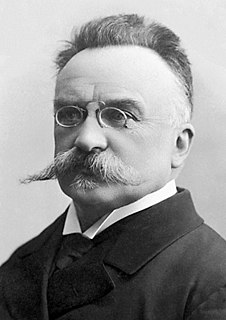A Quote by Steven Weinberg
The most influential utopian idea of the nineteenth and twentieth centuries was socialism, which has failed everywhere. Under the banner of socialism, Stalin's U.S.S.R. and Mao's China gave us not utopias but ghastly anti-utopias.
Related Quotes
There are two generic and invariable features that characterize utopias. One is the content: the authors of utopias paint what they consider to be ideal societies; translating this into the language of mathematics, we might say that utopias bear a + sign. The other feature, organically growing out of the content, is to be found in the form: a utopia is always static; it is always descriptive and has no, of almost no, plot dynamics.
Given that the nineteenth century was the century of Socialism, of Liberalism, and of Democracy, it does not necessarily follow that the twentieth century must also be a century of Socialism, Liberalism and Democracy: political doctrines pass, but humanity remains, and it may rather be expected that this will be a century of authority ... a century of Fascism. For if the nineteenth century was a century of individualism it may be expected that this will be the century of collectivism and hence the century of the State.
It is true that I am not one of those who laugh at utopias. The utopia of today can become the reality of tomorrow. Utopias are conceived by optimistic logic which regards constant social and political progress as the ultimate goal of human endeavor; pessimism would plunge a hopeless mankind into a fresh cataclysm.
Socialism" is no more an evil word than "Christianity." Socialism no more prescribed Joseph Stalin and his secret police and shuttered churches than Christianity prescribed the Spanish Inquisition. Christianity and socialism alike, in fact, prescribe a society dedicated to the proposition that all men, women, and children are created equal and shall not starve.
Two decades ago, however, socialism and communism died rudely, then were buried forever by the empirical demonstration of the superiority of market capitalism everywhere from Thatcher's England to Deng's China, where just the partial abolition of socialism lifted more people out of poverty more rapidly than ever in human history.
Socialism is a wonderful idea. It is only as a reality that it has been disastrous. Among people of every race, color, and creed, all around the world, socialism has led to hunger in countries that used to have surplus food to export.... Nevertheless, for many of those who deal primarily in ideas, socialism remains an attractive idea -- in fact, seductive. Its every failure is explained away as due to the inadequacies of particular leaders.
One of the problems with traditional anti-capitalist thought is that it defines capitalism as a totality, which encourages us to imagine another totality, socialism, which we can try to replace it with. This totalizing perspective has colonized the imagination of anti-capitalism and left us waiting for a revolution we can never have.




































